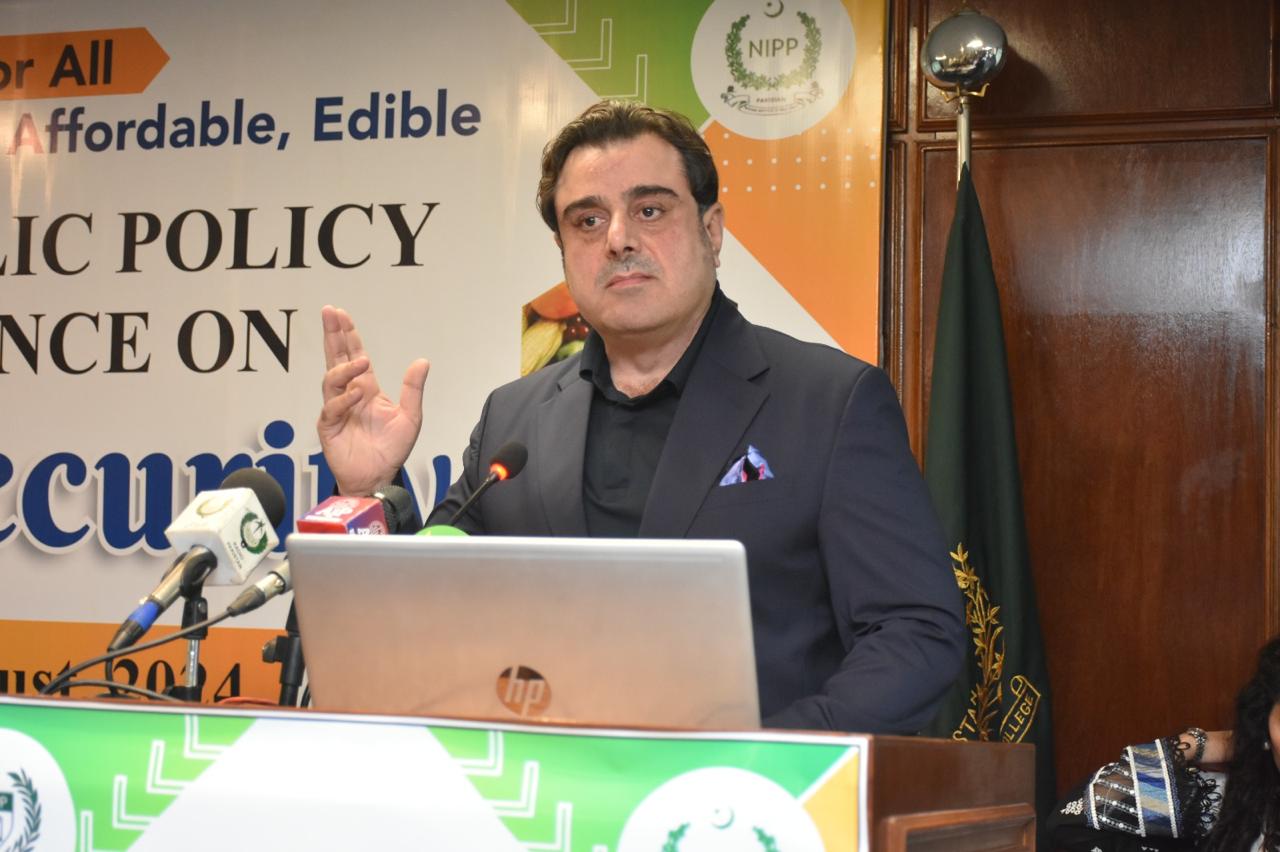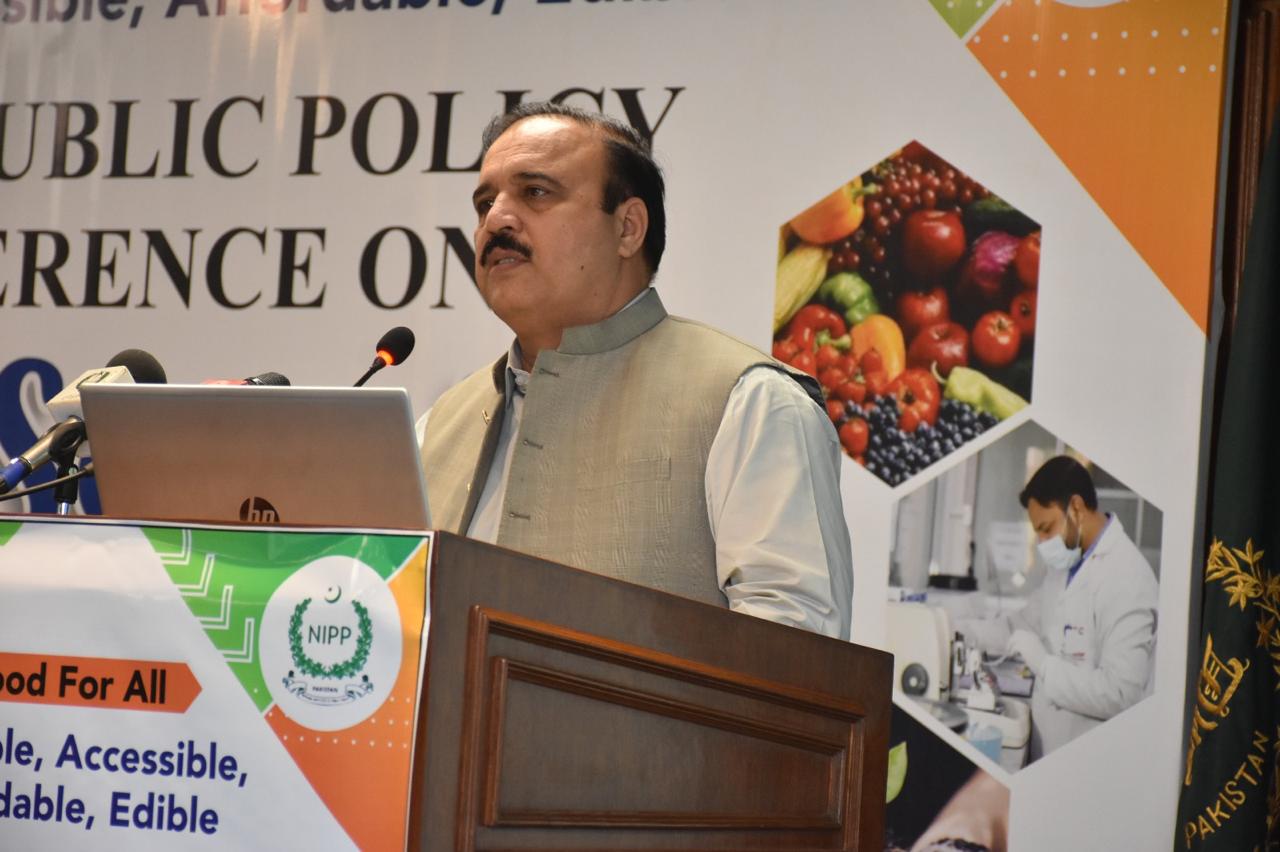LAHORE, Aug 20 The 2nd National School of Public Policy (NSPP)’s Conference on Food Security concluded on Tuesday with speakers emphasizing the urgent need to address the escalating crises.
They called for immediate action and stressed the importance of collaborative efforts to tackle the challenges of food security effectively. Food system activities are increasingly putting pressure on planetary boundaries and the natural resource base which underpins food security for all.
They are also accentuating the triple burden of malnutrition for many in the country, and healthier diets derived from more sustainable food systems are needed. The 2nd conference on Food Security was arranged by National School of Public Policy (NSPP) which was attended by Federal Minister For Planning & Development Ahsan Iqbal, Punjab Food Minister Bilal Yasin, Muhammad Zahir Shah KP Food Minister, Engineer Muhammad Anwar GB Food Minister, Chaudhry Akbar Ibrahim AJ&K Food Minister, Dean NSPP Dr. Naveed Elahi, Rector NSPP Dr. Ijaz Munir and Dr Ishrat Hussain. Researchers, scholars and officer from different federal and provincial departments also attended the conference. The two-day conference was comprehensive, covering a wide range of topics related to the challenges, solutions, and future strategies for ensuring food security. The conference highlighted the importance of achieving Sustainable Development Goal 2 (Zero Hunger) and discussed the development of a robust policy framework to address food security. Both local and international models were presented as potential solutions for eradicating malnutrition. Speakers emphasized the severity of malnutrition, particularly among children, and the need for immediate action. The role of government initiatives, such as those by the Punjab Food Authority, was discussed in ensuring the availability of quality food and protecting the population from substandard products. The conference featured presentations on cutting-edge research related to food security. Academics and experts presented research papers on topics such as the impact of water quality on food production, innovative agricultural practices, and the importance of local research in addressing food security challenges. The final sessions focused on techniques to increase agricultural productivity, being most crucial for food security. Discussions revolved around implementing effective strategies to boost crop yields, manage resources efficiently, and adopt modern agricultural practices. The conference provided a platform for addressing the challenges of food security, including the impact of climate change, resource management, and the role of technology in overcoming these challenges. The event featured a variety of sessions with experts from different fields, including agriculture, public health, and social sciences, who shared their insights and research. The conference concluded with a commitment to continue collaborative efforts in tackling food security issues and the promise of future progress. While addressing the conference, Punjab Food Minister Bilal Yasin stated that despite being among the world’s top 10 agricultural countries, unfortunately, more than 40 percent children and pregnant women suffer from malnutrition. Under the special initiatives of the Punjab government, the Punjab Food Authority continues its efforts to protect the people of Punjab from substandard food and to ensure the supply of quality food. Bilal Yasin said that the Food Authority has established itself in a short time and demonstrated excellent performance. He further stated that the noose around the adulteration mafia has been tightened; in last five months, some 400,000 inspections have been conducted, and 700,000 liters of adulterated milk have been destroyed. Dr Ishrat Hussain emphasized on the importance of post conference follow up for the incorporation of strategies and solutions that emerged during the two-days intellectual discourse into policies. He reiterated that real impact of the conference will come if the suggestions are conveyed to relevant policy makers.





Comments are closed.